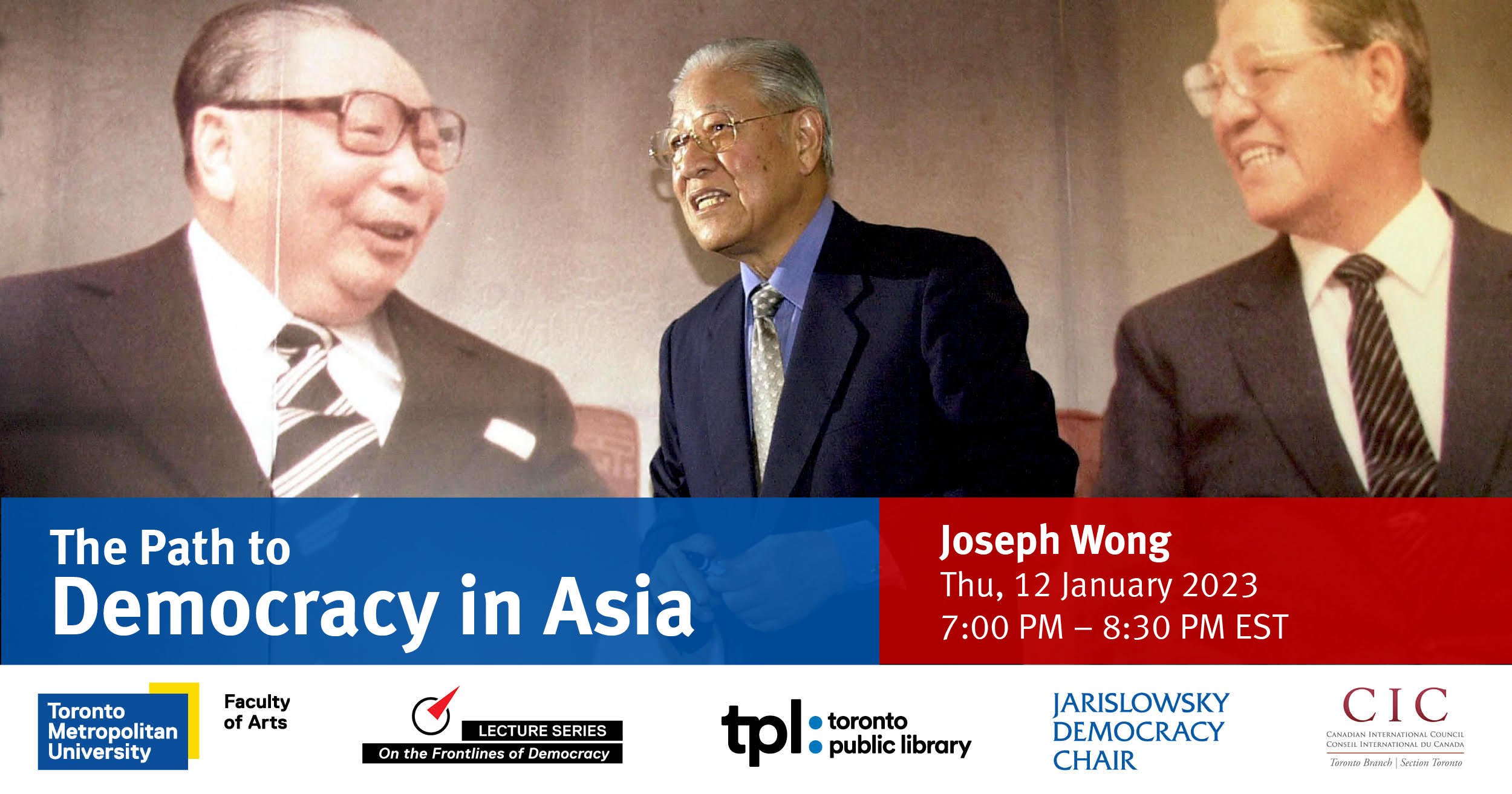The Path to Democracy in Asia
Over the past century, Asia has been transformed by rapid economic growth, industrialization and urbanization–a spectacular record of development that turned one of the world’s poorest regions into one of its richest. Many believed that such powerful socioeconomic transformations would encourage a transition to democracy.
Yet while some countries have democratized, most notably Japan, South Korea and Taiwan, others remain far more autocratic, from Singapore and Cambodia and Vietnam.
What explains these important variations? Why do some autocracies in Asia lose power while others do not? And what are the prospects for democracy in China given these lessons?
The noted political scientist Joseph Wong examines these questions in conversation with Sanjay Ruparelia.
About the speaker
Joseph Wong is the Roz and Ralph Halbert Professor of Innovation at the Munk School of Global Affairs and Public Policy, and Vice President-International, at the University of Toronto. A scholar of comparative public policy and political economy and globalization, he is the author of (with Dan Slater) of From Development to Democracy: the Transformations of Modern Asia, Betting on Biotech: Innovation and the Limits of Asia’s Developmental State, and Healthy Democracies: Welfare Politics in Taiwan and South Korea. His co-edited volumes include Political Transitions in Dominant Party Systems: Learning to Lose, and Innovating for the Global South: Towards an Inclusive Innovation Agenda. The founder and principal investigator for the Reach Alliance (https://reachalliance.org/), a student-driven, faculty-mentored initiative that examines how to deliver essential services to marginalized communities living in extreme poverty, Professor Wong received the Faculty of Arts’s Outstanding Teaching Award in 2013. He regularly contributes to major newspapers and media outlets and lectures around the world. He earned his B.A. from McGill University, and M.A. and Ph.D. from the University of Wisconsin-Madison.
About the discussant
Sanjay Ruparelia is the Jarislowsky Democracy Chair, and an associate professor of politics, at Toronto Metropolitan University. He is the author of Divided We Govern: Coalition Politics in Modern India, editor of The Indian Ideology: Three Responses to Perry Anderson, and co-editor of Understanding India's New Political Economy: A Great Transformation? Sanjay is a co-chair of the Participedia network (participedia.net), associate editor of Pacific Affairs and country expert for V-Dem: the Varieties of Democracy Project (Sweden). He periodically writes popular essays and op-eds in various media, such as Dissent, Global Policy, Hindustan Times, Indian Express, Open Canada, Policy Options, The Globe and Mail and the Toronto Star. He previously taught at Columbia University and the New School for Social Research, served as a consultant to the Asia Foundation (Kabul), United Nations Development Programme (New York) and United Nations Research Institute for Social Development (Geneva), and was a fellow at Notre Dame, Princeton and Yale. He earned his B.A. from McGill University, and M.Phil and Ph.D. from the University of Cambridge. Connect with him on Twitter @SVRuparelia.
This event is co-sponsored by The Canadian International Council (CIC)Toronto Branch. The CIC is Canada’s foreign relations council; a non-partisan membership organization dedicated to advancing constructive dialogue on Canada’s place in the world and providing innovative ideas on how to address the world’s most pressing problems.

